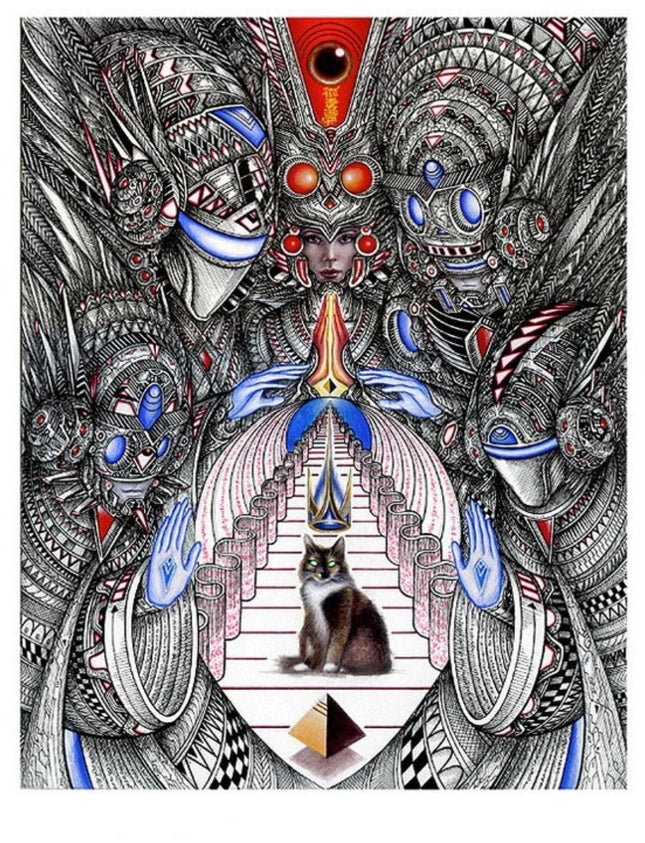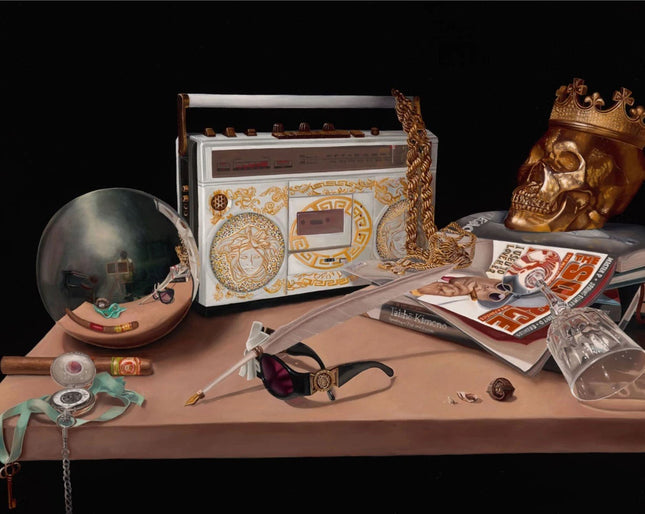
The fusion of popular culture and traditional artistry has given birth to a myriad of genres, each bearing its unique characteristics and quirks. Pop art, street art, and graffiti art are such creative amalgamations, often reflecting the zeitgeist of the time in a visually engaging manner. An intriguing theme that threads through these genres is the repeated use of royal titles such as "Prince" and "King." This motif serves as a potent symbol in the artistic expression, functioning as a critique, an homage, or a bold assertion of self-identity, depending on the artist's intent and context. The notion of "Prince" and "King" within pop art traces its roots to the subversive works of 1960s artists like Andy Warhol and Roy Lichtenstein. These pioneers sought to democratize art by incorporating everyday objects, celebrities, and comic strips into their creations, thereby blurring the lines between 'high' and 'low' culture. Andy Warhol, for instance, famously created portraits of Elvis Presley, the 'King' of Rock 'n' Roll, and Michael Jackson, the 'Prince' of Pop. These pieces not only celebrated these iconic figures but also questioned the societal constructs around fame and idolization. Warhol's work, in particular, emphasized the dichotomy between the public persona and the private individual, a theme that resonates in the portrayal of 'princely' and 'kingly' figures in pop art. In the realm of street art, the titles of "Prince" and "King" hold a significant place, often serving to declare an artist's prominence or mastery over a certain domain. Born from the heart of urban life, street art is a democratic form of expression that thrives on competition and the assertion of selfhood. Here, artists mark their territories, fight for visibility, and establish their legacies. A striking example is the New York City graffiti artist Dondi, widely regarded as the 'Style Master General' or the 'King' of graffiti for his unparalleled typographic skills and stylistic innovations. His moniker held a sense of respect and power within the community, signifying his status as an influential figure. Street art's inherently subversive nature also allows it to serve as a potent tool for socio-political commentary. Banksy, the enigmatic British street artist, has leveraged this to deliver powerful messages about power, authority, and the monarchy. His 2011 piece 'Slave Labour,' depicting a young boy hunched over a sewing machine producing Union Jack bunting, created a stir by critiquing the commercialization around Queen Elizabeth II's Diamond Jubilee and the royal wedding. This work exemplifies how the theme of 'princes' and 'kings' can be harnessed to offer a scathing critique of societal structures and events. Graffiti art, with its roots in the turbulent socio-political landscape of the 1970s and 1980s, often uses the "Prince" and "King" motif as a form of rebellion and a claim to authority within a marginalized community. Here, 'King' often refers to an accomplished artist who has gained respect and recognition within the graffiti community. A graffiti 'King' might display their prowess through 'tags,' stylized signatures, on numerous city surfaces, or through complex works ('pieces') that showcase their artistic skill. The 'Prince,' in contrast, could refer to an up-and-coming artist, much like a prince is a king-in-waiting. In essence, the recurring motif of 'Prince' and 'King' in pop art, street art, and graffiti art encapsulates a multitude of meanings, ranging from idolization and self-assertion to social critique. It is a testament to the versatility and depth of these genres that a single motif can convey such a range of messages, each resonating differently depending on the artist's intent and the viewer's perspective. The 'Prince' and 'King' motif also speaks to the evolving nature of these art forms. 'Prince' and 'King' motif in pop art, street art, and graffiti art offers a fascinating lens to explore these dynamic and ever-evolving genres. From the iconic works of pop art masters to the rebellious creations of street and graffiti artists, this motif continues to evolve, reflecting the changing cultural, social, and political landscapes. As we move forward, it will be interesting to see how artists continue to reinterpret and reinvent these royal titles, imbuing them with new meanings and perspectives.


